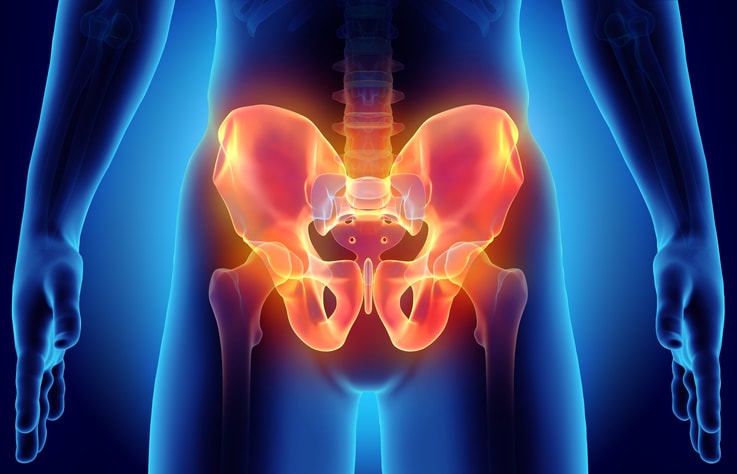
A hip fracture is a serious diagnosis, particularly for patients of an older demographic. Approximately 300,000 Americans are hospitalized because of a hip fracture every year. Most of these patients are elderly, and many have a hard time regaining their independence and recovering from their fall. According to several studies, the one-year mortality rate for elderly patients with a hip fracture is more than 20%.
Why do some hip fractures cause death — and why does this happen so disproportionately among the elderly population? These four reasons will offer some insight.
Why Is a Hip Fracture So Dangerous for the Elderly?
Why is a hip stress fracture such a serious prognosis for the elderly population? There are several factors that put older patients at increased risk following a fall:
1. Lower Bone Density
As we age, our bone density and muscle mass typically decrease. Common conditions like osteoporosis, which causes bones to become brittle and weak, make hip fractures more likely following a fall. Older patients are also more likely to have a fall since they often have decreased mobility and balance.
2. Preexisting Medical Conditions
For a young and healthy individual, a hip fracture is less likely to be a serious issue — and less likely to occur at all. There is a vast range of medical conditions, however, that can increase the likelihood of a broken hip and can make recovery more complicated. Many of these conditions are more prevalent among elderly patients:
- Diabetes: Both Type 1 and Type 2 diabetes reduce bone density, complicating recovery from a hip fracture.
- Neurological impairment: Patients with conditions like dementia, stroke or Parkinson’s disease often have balance issues, making them more likely to have a traumatic fall. They may also have a harder time following recovery protocols and healing properly.
- Intestinal issues: Intestinal disorders can limit a patient’s ability to absorb essential nutrients like calcium and vitamin D, leading to weakened bones.
- Heart attack: Patients who have suffered from a heart attack may have difficulty producing the clotting agents needed to heal properly after a fracture.
3. Risk of Complications
Why do some elderly patients die from a hip fracture? One common reason is their heightened risk of surgical and post-surgery complications.
The initial trauma of the accident can be hard on a patient’s health. During recovery, a hip stress fracture can immobilize a patient for a long amount of time, potentially leading to blood clots and decreased muscle mass. Post-surgical complications, like infections and pulmonary embolism, may also contribute to high death rates.
4. Length of Recovery Time
A patient’s age and overall level of health will impact the recovery time. The typical hip replacement recovery timeline ranges from four weeks to six months. Many elderly patients with limited mobility and decreased independence require a longer recovery time, and many do not return to their former level of independence even after healing.
Schedule a Consultation With OrthoBethesda Today
Are you or a loved one seeking assistance after an injury or fall? At OrthoBethesda, we understand the concerns you may have about healing from a hip fracture. Our orthopedic care services offer the surgical care and physical therapy support you need for a full recovery. Contact us to learn more about our treatment options or schedule a consultation today.
Related Content
- How to Sleep After Total Hip Replacement Surgery
- When You Can Bend Over 90 Degrees After Hip Replacement
- 8 Signs to Know If You Need Hip Replacement Surgery
- How Long Does Hip Replacement Surgery Take?
- Robotic vs. Traditional Hip Replacement Surgery
- Anterior vs. Posterior Hip Replacement
- How to Keep Your Hips and Knees Healthy at All Stages of Life

